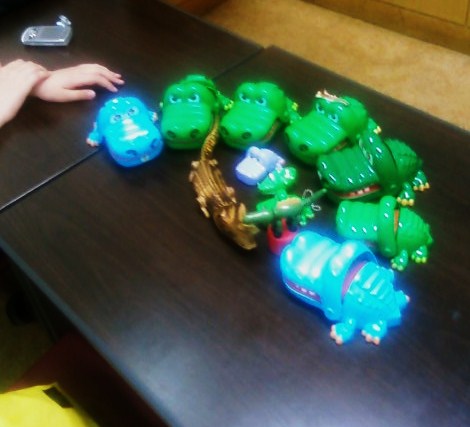According to various news sources (e.g. The Korea Herald, The Australian), South Korea's response yesterday to the North Korean nuclear test has been to finally get around to joining the US's "Proliferation Security Initiative."
This was particularly interesting to me, because of an incident in one of my most advanced debate classes about a month ago. We have these "newspapers" (they have current events packaged for ESL learners, produced by a domestic Korean publishing house) that always have a current debate topic in their pages. I really like pulling our in-class debate topics from these newspapers, because they are always topics that are immediately relevant to South Koreans, being policy issues that are under discussion by the government. I can urge the kids to consider that they are learning not just English, but something along the lines of a South Korean civics class. This provides at least some of them with some additional motivation, and because the topics are prominent in the South Korean media, it also makes them easy to research, even if they are often conceptually quite difficult.
Last month, the newspaper had as its debate topic the question as to whether South Korea should fully join the US's Proliferation Security Initiative. I didn't know much about it, and I didn't put too much time into researching it, myself. I read the article, gave it some thought, and it seemed like a pretty uncontroversial thing, to me. I understood South Korea's ambivalence, about it, however, given the always fraught nature of its relationship with its northern neighbor — North Korea had basically said that it would view South Korea joining this treaty as a "declaration of war." Huh… right.
I tend to avoid stating my personal opinion on these debate topics until after the debate is finished, so as not to bias the students' take on them. But I'd formed in my mind that joining PSI would probably be OK. Until Sally's discussion of it.
Sally is a sharp sixth grader. A bit of a prodigy, in some ways, excellent with these civics and social studies type concepts. I have joked that she's going to be a lawyer, some day. Anyway, we were beginning our discussion of this Proliferation Security Initiative, and she begins, quite simply: "I read about it, and I think it's illegal." My jaw dropped open. "Uh… That's not what the newspaper said," I was thinking to myself.
But she went on to explain that it involved arbitrary search and seizure in international waters, and that it basically boiled down to a form of international racial profiling of ships-at-sea. Not using this kind of vocabulary — she's not THAT good — but she did a perfectly adequate job of making these ideas clear using simpler vocabulary. And I was just stunned, even recognizing that she was probably basing this on something she'd found on a Korean opinion website of some kind. Because here was a 6th grader, lecturing me on international law. She'd managed to internalize the arguments, and it was clearly not just parroting but that she understood the significance of them. I was so impressed.
Sure enough, when you look at Wikipedia on the topic of PSI, you find that it was another one of those dubious cowboy-internationalist undertakings of John Bolton, former UN Ambassador under President Bush. Given that pedigree, how could it NOT be illegal? I bonked my forehead and went "d'oh!" And, because of Sally, I changed my mind about South Korea joining the Proliferation Security Initiative.
Now, it becomes moot (note to self: now is the time to explain the meaning of the word "moot" to Sally's class — we can revisit PSI for 5 minutes in light of the news). South Korea has gone and jumped into it, anyway, in reaction to the North's intemperance. Ah, well…






